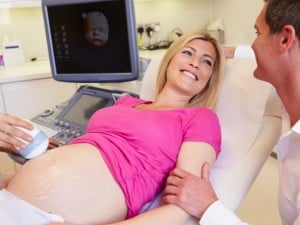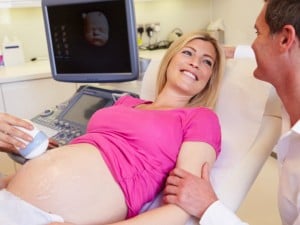

Women and couples can take a number of steps to maximize the chance of conception, including having sex during the fertile window (the best time to get pregnant), monitoring cervical mucus, and use of ovulation predictor kits (urine or saliva) etc. Here are some things a man can do to increase the chances of the couple achieving pregnancy.
A widely held misperception is that frequent ejaculations decrease male fertility. Researchers E. Levitas, et al., studied almost 10,000 semen specimens and found that in men with normal semen quality, sperm concentrations and motility remain normal, even with daily ejaculation. In men with low sperm count and/or motility, the best samples were obtained with daily ejaculation. Semen parameters deteriorate when the abstinence interval is longer than 10 days. Reproductive efficiency increases with the frequency of intercourse and is highest when intercourse occurs every 1 to 2 days. Keeping this in mind, a couple should have intercourse based on its own preferences. (Your partner can calculate the best time for her to get pregnant with this easy-to-use fertility calendar.)
No. A man makes new sperm every 72 days or so. There, however, is no variation based on the time of the day. i.e. one time is not better than the other.
Levitas et al. compared the different sperm parameters according to season of the year on sperm production day and the season 70 days prior (during spermatogenesis). A total of 6455 consecutive semen samples were collected as part of the basic fertility evaluation of 6447 couples. The sperm concentration and percentage of fast motility showed a significant decrease from spring toward summer and fall (P < 0.001) with recovery noticed during the winter. The highest percentage of normal sperm morphology was observed during the winter months. Seasonal sperm pattern seems to be a circannual-rhythmic phenomenon. The winter and spring semen patterns are compatible with increased chances of conception and may be a plausible explanation of the peak number of deliveries during the fall.
Other researchers have found that there was no seasonal variation in sperm parameters.
There is no scientific evidence suggesting that one position is better than the other. Sperm can be found in the cervical canal seconds after ejaculation, regardless of coital position. There is also no relationship between specific coital practices and gender of the baby. Vaginal lubricants may decrease fertility. Water-based lubricants (e.g. Astroglide, KY jelly, and Touch) inhibit sperm motility. Canola oil, mineral oil and Pre-Seed do not and can be used if needed.
No. Female orgasm may promote sperm transport. However, there is no known relationship between orgasm and fertility.
Smoking, heavy drinking (greater than two drinks a day), drugs are all known to decrease fertility. Obesity is also associated with low sperm counts. Other environmental factors can also affect fertility, such as hot tubs and saunas, laptop computers, second hand cigarette smoke, tight underwear and excessive heat at work.
Improving your lifestyle is a big step in the right direction. Weight loss, regular exercise, quitting smoking tobacco and marijuana, drinking alcohol only in moderation are absolutely necessary to maximize chances of success.
A diet rich in anti-oxidants can also help. Great antioxidants include: blackberries, blueberries, strawberries, pomegranate, cranberries, green tea, dark chocolate, cooked vegetables and spices such as cumin, turmeric, ginger and oregano.
These can be an issue for agricultural workers. Pesticides have been shown to have a negative impact on sperm parameters. The best way to minimize their effect is to make sure that Occupational Health and Safety Administration (OSHA) guidelines are followed at work.
Oxidative stress occurs due to excessive production of reactive oxygen species (ROS) by the spermatozoa. This results in defective sperm production (by causing lipid peroxidation of sperm membrane) and also has an adverse effect on fusion events required for fertilization. Antioxidant supplements that can help include Coenzyme Q10, Lycopene, Omega 3 fatty acids, carnitine, Vitamins C and E, selenium, glutathione, N-acetyl cysteine, Zinc and Vitamin B 12. These have been discussed in detail in a previous blog.
To see a qualified fertility specialist with experience treating male and female fertility issues, make an appointment at one of InVia’s four convenient Chicago-area fertility clinics.
Infertility treatment Conception InVia Fertility Specialists

Dr. Karande is Board Certified in the specialty of Obstetrics and Gynecology as well as the subspecialty of Reproductive Endocrinology and Infertility. He is a Fellow of the American College of Obstetricians and Gynecologists and Member of the American Society for Reproductive Medicine.
Subscribe to our weekly blog digest

Entire Website © 2003 - 2020
Karande and Associates d/b/a InVia
Fertility Specialists

Comments